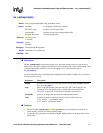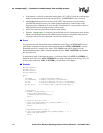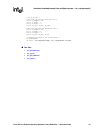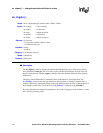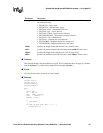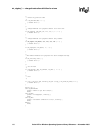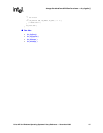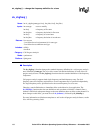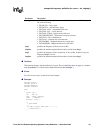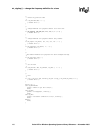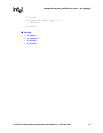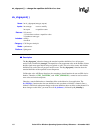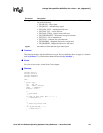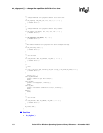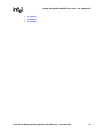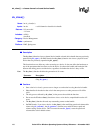
Voice API for Windows Operating Systems Library Reference — November 2003 159
change the frequency definition for a tone — dx_chgfreq( )
!
!!
! Cautions
This function changes only the definition of a tone. The new definition does not apply to a channel
until dx_deltones( ) is called on that channel followed by dx_initcallp( ).
!
!!
! Errors
For a list of error codes, see the Error Codes chapter.
!
!!
! Example
#include <stdio.h>
#include <srllib.h>
#include <dxxxlib.h>
#include <windows.h>
main()
{
DX_CAP cap_s;
int ddd, car;
char *chnam, *dialstrg;
chnam = "dxxxB1C1";
dialstrg = "L1234";
/*
* Open channel
*/
if ((ddd = dx_open( chnam, NULL )) == -1 ) {
/* handle error */
}
Parameter Description
tonetype specifies the identifier of the tone whose definition is to be modified. It may be
one of the following:
• TID_BUSY1 – Busy signal
• TID_BUSY2 – Alternate busy signal
• TID_DIAL_INTL – International dial tone
• TID_DIAL_LCL – Local dial tone
• TID_DIAL_XTRA – Special (extra) dial tone
• TID_DISCONNECT – Disconnect tone (post-connect)
• TID_FAX1 – Fax or modem tone
• TID_FAX2 – Alternate fax or modem tone
• TID_RNGBK1 – Ringback (detected as single tone)
• TID_RINGBK2 – Ringback (detected as dual tone)
freq1 specifies the frequency of the first tone (in Hz)
freq1dev specifies the maximum permissible deviation (in Hz) from freq1
freq2 specifies the frequency of the second tone, if any (in Hz). If there is only one
frequency, freq2 is set to 0.
freq2dev specifies the maximum permissible deviation (in Hz) from freq2



